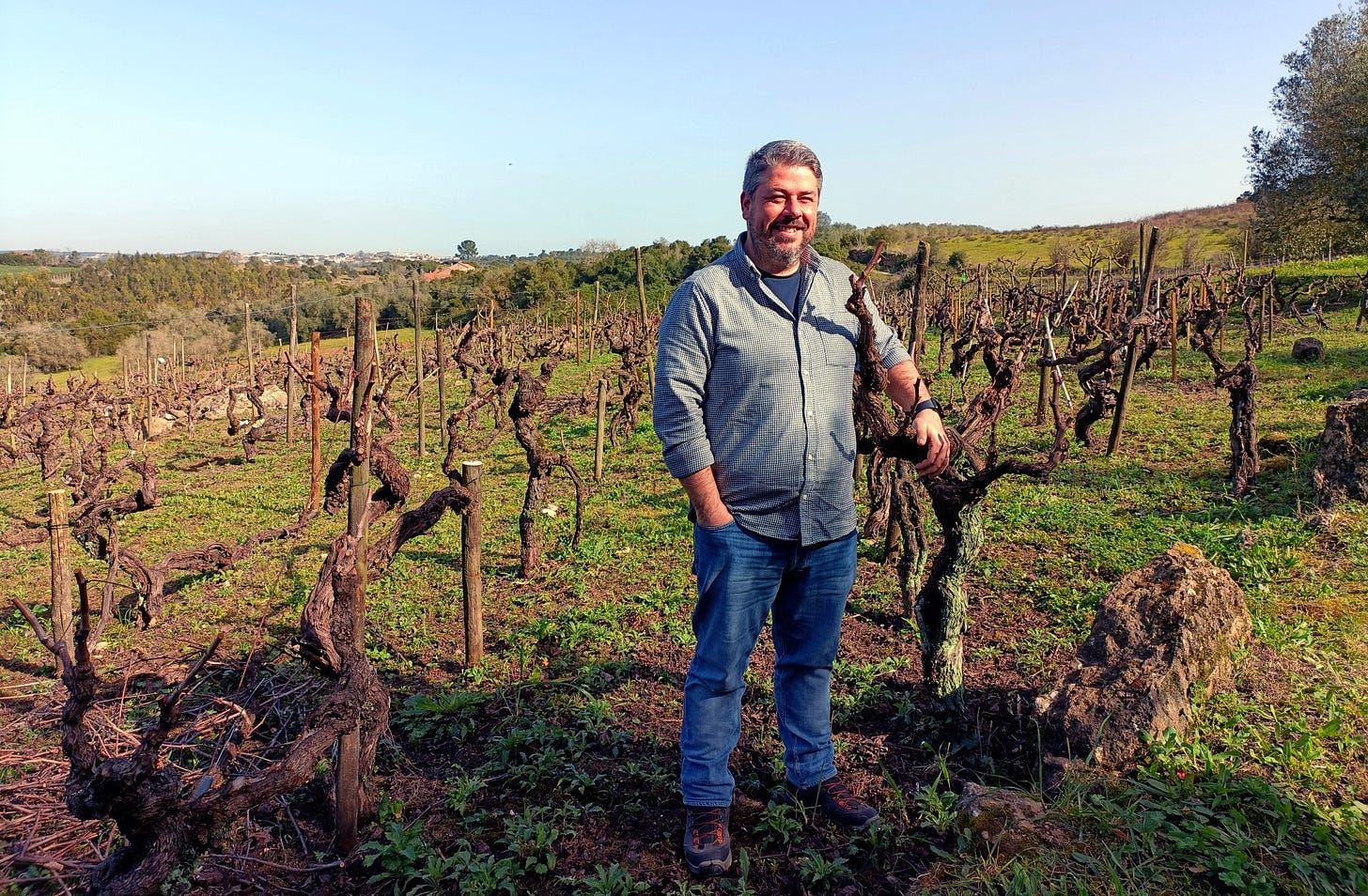The new Lisboa: Chinado
Simon visits João Tereso, a sound engineer turned winemaker with a penchant for breathing new life into old vineyards, and for crafting delicious natural wines in the Lisboa region.
João Tereso is a live sound engineer by trade. You're more likely to find him behind a large mixing console at a jazz festival than in a vineyard. But that all changed when he learned that his grandfather's old vineyard in Alcobaça was about to be sold by the family. Tereso had more than a little sentiment about the vines, as some of his earliest memori…
Keep reading with a 7-day free trial
Subscribe to The Morning Claret to keep reading this post and get 7 days of free access to the full post archives.




